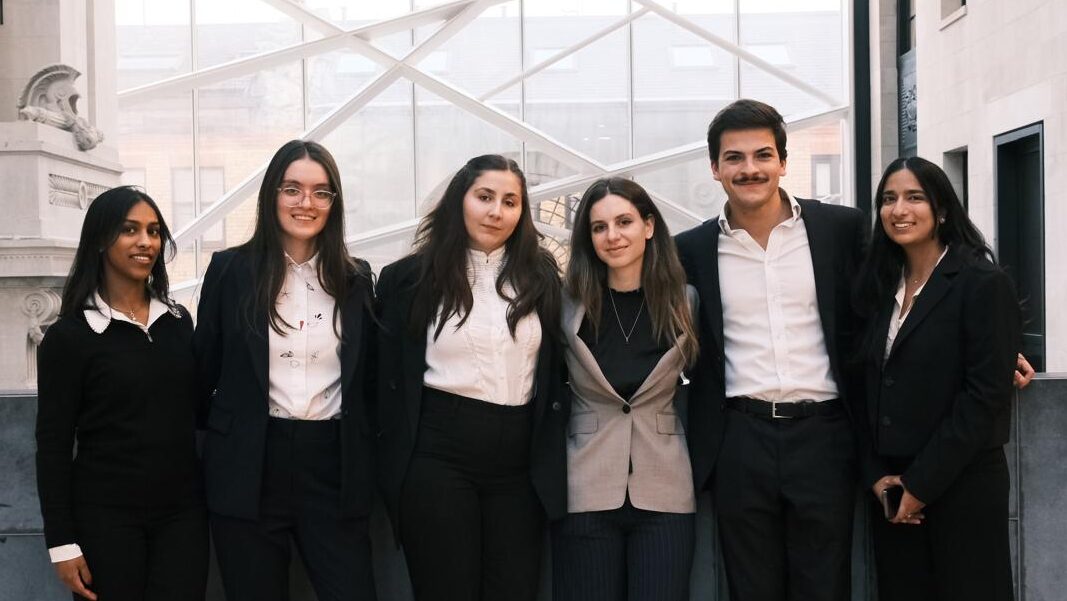By Guzalya Latipova, MFA2025
Before I even applied to London Business School, I heard about London Business Challenge Week (LBCW) from a fellow alum of my undergraduate university. They described it as one of the most intense and rewarding parts of their LBS experience. It was a chance to work directly with a company on a live business issue and apply classroom learning in a real-world setting. That conversation stuck with me. It gave me an early glimpse into what made LBS unique and was one of the factors that eventually led me to apply.
When it came time to choose my LBCW project, I was genuinely excited. The list of participating companies and briefs reflected a broad mix of industries, including finance, fintech, ESG, and sustainability. What drew me most, though, were the projects focused on emerging markets, given my background growing up in Uzbekistan.
Among the options was a project with Gryphon Holdings, a London-based investment and advisory firm that has been active in Central and Eastern Europe, the Middle East, and North Africa since the early 1990s. Their work focuses on deploying capital into high-impact private sector initiatives across frontier economies, regions often underserved by traditional investors. I was especially intrigued to see that they had worked on projects in Uzbekistan. It felt like a meaningful opportunity to explore investment challenges closely linked to a region I care about. Naturally, I included Gryphon in my top five project preferences. I was pleased when I was matched with them. The project felt aligned with both my academic interests and personal motivations.

Before the first meeting with the client, our team – Snigdha Allada, Manuel Judice, Ruhi Khanna, Maria Klyavkova, Karin Petrescu, and myself – held a planning session to review the brief and prepare thoughtful questions. That preparation really paid off. When we met Jonathan Young, Gryphon’s CEO, we were able to engage in a productive conversation from the start. He walked us through Gryphon’s investment philosophy, their regional experience, and the strategic thinking behind the project. It was fascinating to hear how the company approaches opportunities in markets where volatility, political risk, and limited data all play a role. It gave us clarity on our task and a deeper appreciation for the real-world complexities involved.
The Reality of a Fast-Moving Project
From the beginning, it was clear that the project would move quickly. With just one week from kick-off to final presentation, clear communication, organisation, and collaboration were essential.
As a team, we structured the work by dividing it into focused streams such as financial modelling, country-specific research, and presentation development. Throughout the week, we stayed in close contact to ensure the final output was cohesive and well-integrated. I was responsible for analysing investment risk across several Central Asian countries. As the project progressed, we refined our focus based on client feedback and data availability. The evolving nature of the work kept it engaging and taught me to remain adaptable while still striving for meaningful insights.
Midway through the week, we also had a mentoring session with LBS Sloan alums. These were experienced professionals from diverse industries who brought a fresh and strategic perspective to our project. Their advice helped us take a step back and think not just about what we were analysing, but how we were presenting it. They encouraged us to focus on the most important outputs and to frame our findings in a way that highlighted real-world applicability. Most importantly, they guided us in shaping our presentation into a clear and compelling narrative that communicated our approach and recommendations in a way that resonated with the client.
What stood out to me was how important effective teamwork and open communication were for maintaining momentum. Even though each of us had specific responsibilities, we made time to share our progress, exchange ideas, and make decisions together. This helped us stay aligned throughout the project and ensured that our final presentation felt cohesive and well thought out.
Looking back, I’m proud of what we delivered. We developed a structured framework that combined financial theory with practical application, tailored to the needs of the client. The Gryphon team appreciated our approach and gave us encouraging feedback on both the depth of our analysis and the clarity of our presentation.
If I had the opportunity to choose this project again, I would. It aligned with my interests, challenged me intellectually, and gave me meaningful exposure to how investment strategy is shaped in complex markets. I also gained a deeper understanding of how risk, opportunity, and long-term thinking intersect in emerging economies. At the same time, I would have been equally excited to take on a project more embedded in day-to-day operations, where students contribute directly to solving ongoing business challenges. That is what makes LBCW such a valuable experience. Every project offers a unique lens and its own set of learning opportunities.
